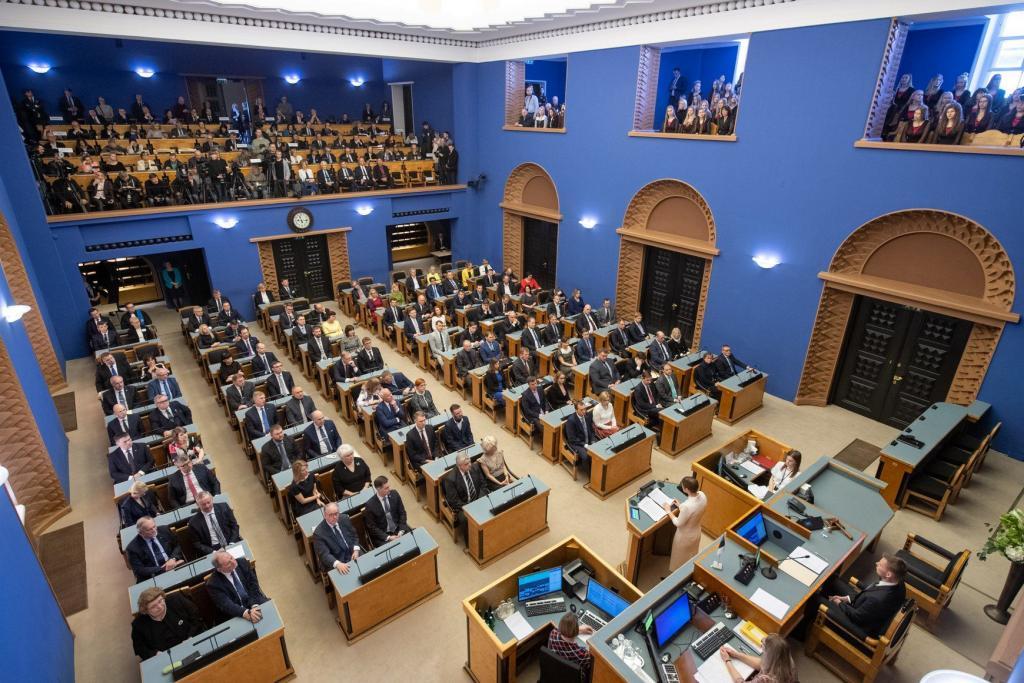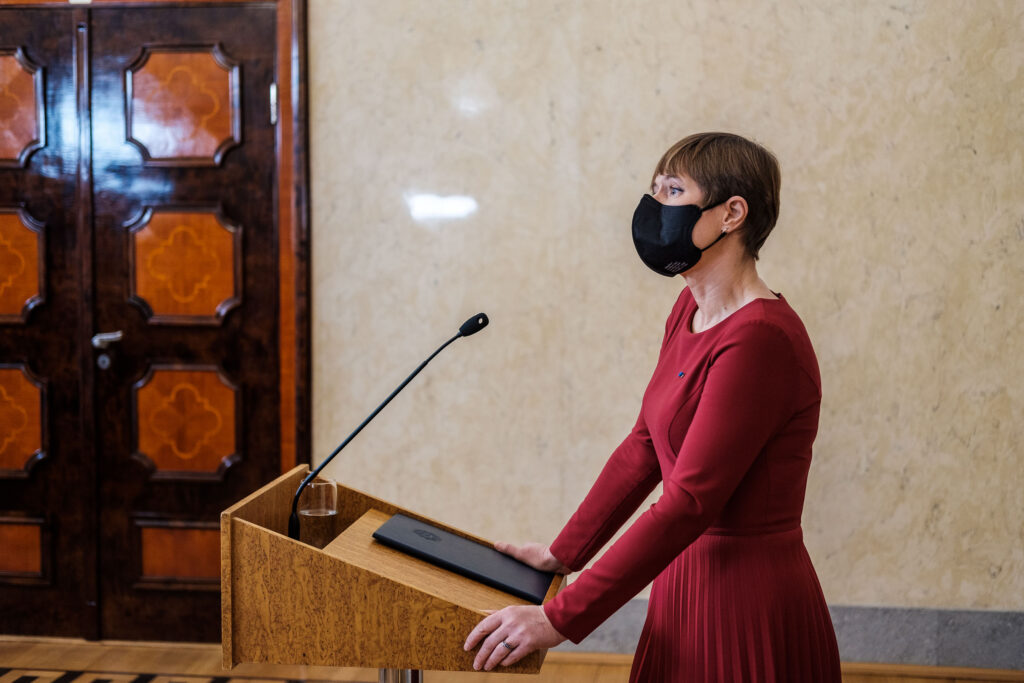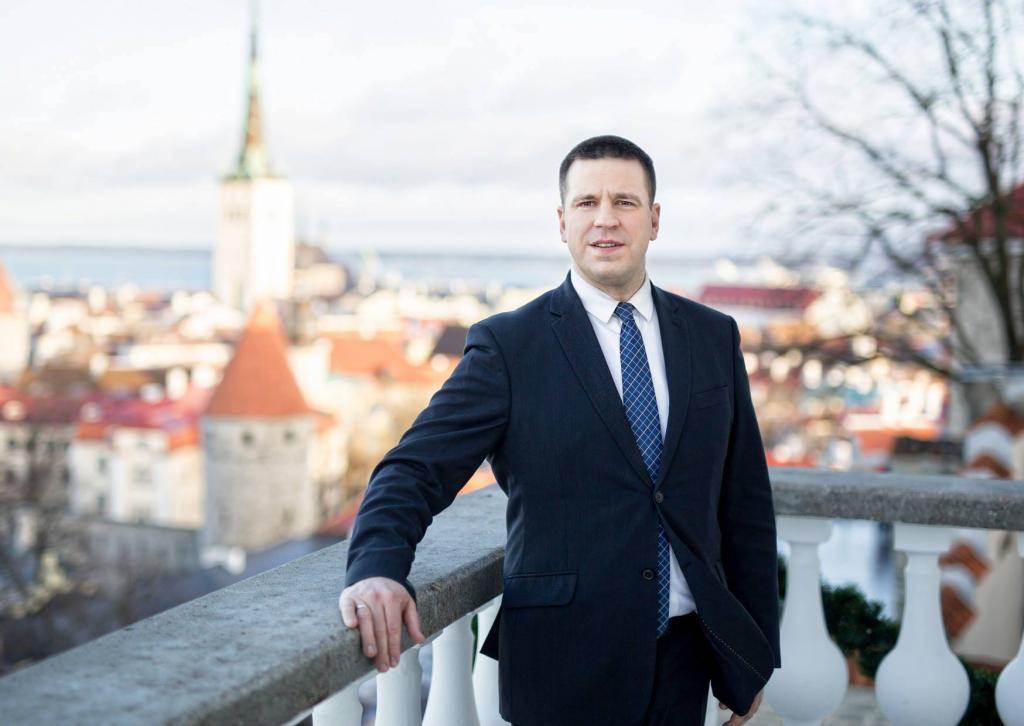Jüri Ratas, the Estonian prime minister and the head of the Centre Party, has resigned, following the party’s suspected criminal involvement in a corruption case, bringing an end to the current coalition government; On 14 January, the Estonian president nominated the opposition leader Kaja Kallas as the candidate for new prime minister.
On 12 January, the Public Prosecutor’s Office announced it suspected the Centre Party and five individuals, including the party’s secretary-general, Mihhail Korb, were involved in a corruption case.
Influence peddling
According to the suspicion, Korb had asked the Estonian businessman, Hillar Teder, to support the party with up to a million euros within a year – in return for the €39 million loan to Teder’s Porto Franco real estate development by Old City Harbor in Tallinn. The loan was granted by Estonia’s state credit agency, KredEx.
But because of the huge amount, KredEx’s loan decision needed an approval by the coalition government – comprising of the Centre Party, the Estonian Conservative People’s Party and Isamaa – which it received in July 2020.

Teder, indeed, supported the Centre Party in 2020. As of January 2021, he had donated €120,000 to the party since Porto Franco received the loan in summer 2020. In addition to Centre Party, Teder has since 2013 also supported the Reform Party, Isamaa and Social Democrats, with over €1.2 million in total.
Porto Franco said in 2020 it needed the loan because the business was hit by the coronavirus crisis. Even at the time of the loan’s approval, it raised many eyebrows in Estonia – many analysts pointed out there were many businesses that struggled as much, if not more.

Ratas resigns
While Korb resigned immediately, the Centre Party’s board gathered for a snap meeting in the evening of 12 January. At around 3 AM on 13 January, the party’s leader and Estonia’s prime minister, Jüri Ratas, also announced his resignation.
Ratas has been Estonia’s prime minister since November 2016. From 2016 until spring 2019, he led the coalition of Centre Party, Social Democrats and Isamaa.
Since the 2019 parliamentary election, Ratas’s party formed the coalition with Isamaa and the far-right Estonian Conservative People’s Party, also known as EKRE – the decision of which received a widespread criticism in Estonia and abroad. Since then, his government has experienced many scandals, mainly due to the outspoken EKRE leaders, father and son Mart and Martin Helme.

The corruption scandal and Ratas’s resignation comes just a day before the coalition was supposed to vote in the parliament on EKRE’s proposal to hold a referendum on the definition of marriage in Estonia in spring 2021.
In addition to Korb, one of the five people suspected of influence peddling is Kersti Kracht, an adviser to Martin Helme, the current leader of EKRE and the finance minister. According to the Public Prosecutor’s Office, Kracht promised Teder to use her influence on getting the €39-million loan from KredEx on favourable conditions.
Martin Helme said on 12 January that neither he nor EKRE had no prior knowledge of the influence peddling. Kracht was also suspended as his advisor.
Ratas issues a statement
Jüri Ratas issued a statement in the early hours of 13 January. The prime minister, in his resignation statement, thanked the Estonian people, politicians and his coalition partners for the four years he could, in his own words, “serve Estonia, help everyone live better and make the country’s international image stronger”, according to the Estonian newspaper, Postimees.
“In politics, one has to make difficult decisions in order to solve complicated situations. Today, I made a value-based decision, in the situation that has developed, to resign as the prime minister of the Republic of Estonia,” Ratas said in a statement.

Ratas acknowledged that with his decision, the lifespan of the coalition was over. He added that he resigned due to the Porto Franco suspicious financial affairs. “What mattered was, to take into the account the situation in the society and the decision yesterday that amplified the suspicion against the party and its secretary-general, then this is where you have to take responsibility. To show a high political culture.”
“The accusation doesn’t mean anyone’s definitely guilty, but, alas, it will cast a shadow on everyone involved. In that situation, it seems only right that by my resignation I will let everyone involved to cast light onto it without interruption and arrive at a conclusion. For the sake of the political and societal peace.”
Ratas also said he wasn’t aware of the suspicious financial affairs of Porto Franco, and claimed he didn’t make a single malignant or a knowingly wrong decision.
A new coalition or a snap election?
Ratas’s resignation means the current government steps down. It is possible the new government is formed by the same partners – Centre Party, EKRE and Isamaa – albeit with a different prime minister, but considering the circumstances, this scenario is unlikely.
To start with, Isamaa would find it hard to justify forming the coalition with the party that is again (Centre Party, while led by its founder and former leader, Edgar Savisaar, had numerous corruption scandals in the past) involved in a corruption scandal.
It is more likely the new government will be formed by the Reform Party – the winner of the 2019 parliament election – together with Isamaa and the Social Democrats. Another option would be the coalition between the Reform Party and the Centre Party. A snap election is also a possibility.

In the current parliament, the Reform Party has 34 MPs, Centre 25, EKRE 19, Isamaa 12 and the Social Democrats have 11 MPs.
Mihhail Kõlvart, one of the most influential Centre Party politicians and the mayor of Tallinn, told the Estonian Television’s breakfast programme that, in his opinion, the party should now go into opposition. He added the Reform Party is now in a leading position to form the new government.
President asks Kaja Kallas to form the new government
The Estonian president, Kersti Kaljulaid, said at a press conference in the morning of 13 January that she would ask Kaja Kallas, the leader of the Reform Party, to form the new government. However, as Estonia is the parliamentary republic, the president can only make a proposal – ultimately, it’s the parliament’s majority that will decide the outcome.

Kaljulaid said at a press conference the Estonian law gives the president 14 days starting from 14 January to make the proposal on who should form the new government. But the president said “the people of Estonia do not have time in the current crisis situation to wait for the formal deadlines”, hence she will make an offer to Kaja Kallas already on 13 January to become the candidate for prime minister.
“We do not have time in the current crisis situation to wait for the formal deadlines and to stretch time without good reason. Estonian people do not have time for it. I will meet with Kaja Kallas again already today, to discuss the situation,” Kaljulaid said in the morning of 13 January.

On 14 January, Kaljulaid formally signed a decree, nominating Kallas as the candidate for prime minister. On the same day, the Reform Party and the Centre Party entered into formal negotiations to form the new coalition government.
If she succeeds in forming the new coalition, Kaja Kallas would be Estonia’s first female prime minister.
Cover: Jüri Ratas. Photo by Stenbock House.

